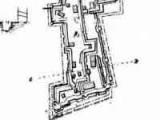What happened that day?
See historic events for any day of the year by entering the date below. Why not try your birthday?
Kiwi of the Week
Today in History

1865 Capture of Weraroa pa
Governor George Grey oversaw the capture of the Pai Marire (Hauhau) pa at Weraroa, Waitotara. General Duncan Cameron and 2000 British troops stationed nearby had refused to attack the pa.
Pai Marire, a new religious faith, grew out of the conflict over land in Taranaki in 1862. Civil wars broke out as factions within iwi opposed its spread. Many Europeans regarded it as anti-Pakeha and synonymous with violence.
With the end of fighting in the Waikato and Bay of Plenty in 1864, Grey was keen to use British troops before they were withdrawn from New Zealand. His political aims included dealing with Pai Marire in the Wanganui-South Taranaki area and occupying land at Waitotara.
Cameron had learned the hard way the risks involved in attacking pa from the earlier Waikato and Bay of Plenty campaigns. In South Taranaki he adopted a cautious approach – no pa were to be attacked and his men kept to the open country near the coast. Maori nicknamed him the 'Lame Seagull'. Grey was unhappy with these tactics. The general, for his part, was not interested in being used to acquire land for the New Zealand government.
Weraroa, high above the Waitotara River, had become the headquarters for a Maori force of up to 2000 that had gathered to halt Cameron's advance in January 1865. Maori were defeated at nearby Nukumaru (January) and Te Ngaio (March) when they fought in the open. Cameron made no attempt to assault Weraroa and seemed willing to play a waiting game. This decision led to the utter collapse of his relationship with Grey. Cameron resigned his New Zealand command and left the country in August.
By July, though, it seemed as though Cameron's tactics had paid off. Weraroa had lost its strategic significance and the small remaining garrison appeared willing to surrender. Grey saw Weraroa as an opportunity to make a strong political statement. It is for this reason that he accompanied a mixed force of Maori, volunteer cavalry and Forest Rangers into the pa on 21 July.
Not for the first time in his career, Grey was able to put a positive political spin on this action and his role in it. In early September 1865 he announced peace in Taranaki and the confiscation of large quantities of land in the area for European settlement.
Image: Weraroa pa (detail) (NZETC)














